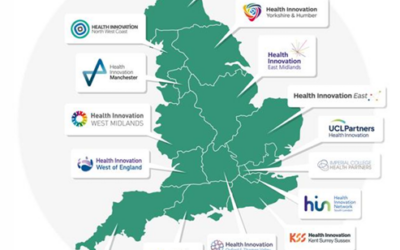Pathways to a zero carbon Oxfordshire – a report from the University of Oxford’s Environmental Change Institute (ECI) and Bioregional, with support from individuals from the Transport Studies Unit and Engineering Department.
In 2014, Low Carbon Oxford, in partnership with the Environmental Change Institute at the University of Oxford, published a report evaluating the scale and potential of the low carbon economy in Oxfordshire. Since then, substantial investment has been made in research, innovation and deployment of low carbon solutions. Two of four national energy systems demonstrator projects are based in Oxfordshire, and the region’s automotive sector continues to lead the way on innovation for autonomous vehicles, electric powertrain development and battery technologies. The University of Oxford has successfully generated 30 new cleantech spinout companies, with many more establishing a presence within the county and pioneering new technologies to address the challenges created by the climate emergency. The low-carbon sector is also thriving alongside high-tech industries, as community groups and SMEs develop solutions to reduce carbon emissions through alternative business models and the sharing economy.
Seven years on from the Low Carbon Economy report, the economic, environmental and policy context is very different, illustrating the speed with which the landscape is changing. This requires a new approach to assessing Oxfordshire’s contribution to mitigating climate change. Although the businesses and communities often referred to as the ‘green sector’ will have a crucial role to play in delivering the products and services needed to decarbonise the economy, it is imperative that activity across the economy is compatible with a zero-carbon future. This report addresses the question of how Oxfordshire’s entire economy can achieve net-zero emissions by 2050, or sooner. It highlights the enormous challenges ahead in transforming our energy and transport systems, substantially upgrading our building stock, and using our land for enhanced carbon sequestration. Progress since 2014 has been uneven, and the report points to areas where change and investment is urgently needed.
Access Pathways to a zero carbon Oxfordshire here


